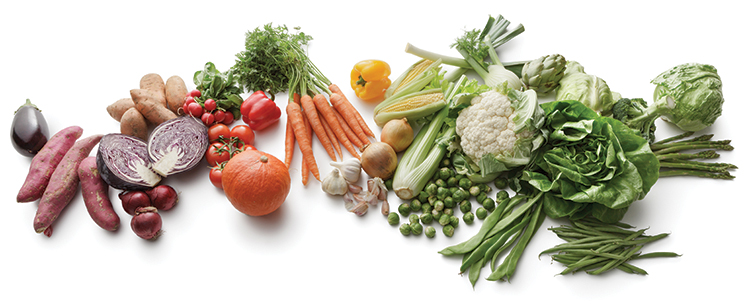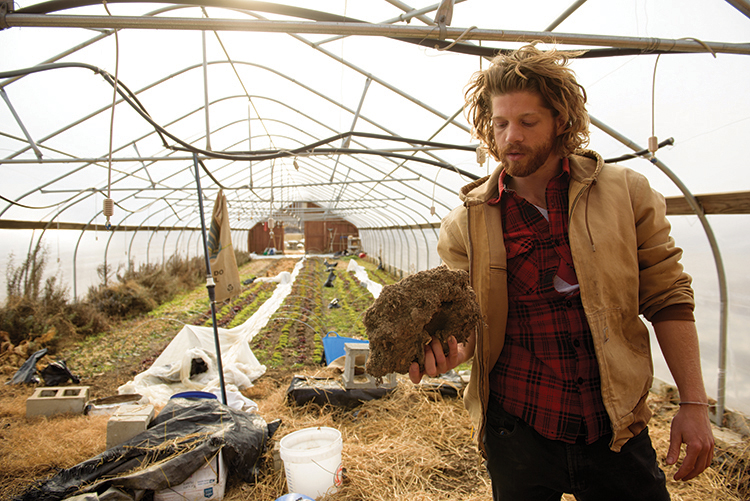by Emily Kovach
In and around our fine city, CSAs are so commonplace (a wonderful thing!) that we almost considered skipping an explanation of what those initials even stand for. But for those new to the concept, and even just as a reminder for those of us who dutifully pick up our cardboard boxes every week, here goes: CSA stands for community supported agriculture. It’s a seasonal—sometimes yearlong—subscription to a farm or producer, which ensures them a steady cash flow throughout the highs and lows of the growing season and hooks the customer up with weekly deliveries or pickups of seasonal fruits, veggies and other tasty things to eat. It’s a way that, as a society, we can help independent farmers not just stay afloat, but actually thrive in the face of Big Ag. Amid a growing economy of subscription-based businesses, “CSA” has become a bit of a buzzword, and we urge you not to lose the true meaning of what it is: a symbiotic partnership between member and farmer.
CSAs to Know:
Mostly Produce with Add-ons
Greensgrow Farm Share
Subscribers to this urban farm’s seasonal share receive an array of fruits, veggies, vegan or dairy protein options, and more.
Areas served: Pickups in Kensington and West Philadelphia
215.427.2780 ext. 2
Philly Foodworks
This program offers mostly certified organic produce, and the noncertified produce is grown with clean farming practices.
Areas served: Philadelphia and western suburbs
215.221.6245
Pennypack Farm
Likely inclusions in this farm’s next summer/fall share: collards, bok choy, bell peppers, tomatillos, radishes, kale and more.
Areas served: Northeast suburbs and Montgomery County
215.646.3943
Red Earth Farm
Produce from this farm in Kempton, Pa., is grown without synthetic pesticides or herbicides. Red Earth also offers options for eggs, cheese, yogurt and honey.
Areas served: Philadelphia, western suburbs, West Chester, Lehigh Valley
610.756.3600
Lancaster Farm Fresh Co-op
Choose from large shares (11 to 13 produce varieties, weekly) or medium shares (six to eight varieties) of certified organic produce from a cooperative of family farms.
Areas served: Philadelphia and surrounding suburbs, west as far as Harrisburg, north as far as NYC, and south as far as D.C.
717.656.3533
Tinicum CSA
Pick out your favorite veggies directly on the farm, May through November, every week or every other week.
Areas served: Bucks County
215.630.2172
Taproot Farm
Sign up for a 23-week share in summer or a 12-week share in winter for veggies, berries, melons and options for fruit, eggs, mushrooms, bread and dairy.
Areas served: Greater Philadelphia, Lehigh Valley and Berks County
610.926.1134
The Common Market Farm Share
The Common Market Farm Share provides members with a rotating seasonal variety of fruits, vegetables, artisanal cheeses, poultry and more.
Meat & Cheese
Primal Supply Butcher’s Club
Vacuum-sealed packages of pasture-raised beef, pork and poultry are available for weekly or alt-weekly pickups, with additional options for fresh eggs, loin steak or other items in the online store.
Areas served: Pickup sites throughout Philadelphia, and one in Cherry Hill, N.J.
Collective Creamery
Subscribers can pick up grass-fed, handmade cheese, butter and yogurt every other week, along with special treats from Collective Creamery’s friends in the local cheese trade.
Areas served: Philadelphia, Lehigh Valley, as well as Chester, Berks, Delaware and Montgomery counties
Yellow Springs Farm
This farm in Chester Springs offers assortments of both fresh and aged pasteurized cheeses twice a month.
Areas served: Pickup sites in Chester County, Mount Airy and Roxborough
610.827.2014
Flowers
Jig-Bee Flower Farm Share
Jig-Bee members select their closest pickup location and get 20 to 25 stems of seasonal flowers, already arranged and ready to be placed in a vase.
Areas served: Pickup sites in South Philly, Kensington, Center City and Fairmount
267.777.9636








